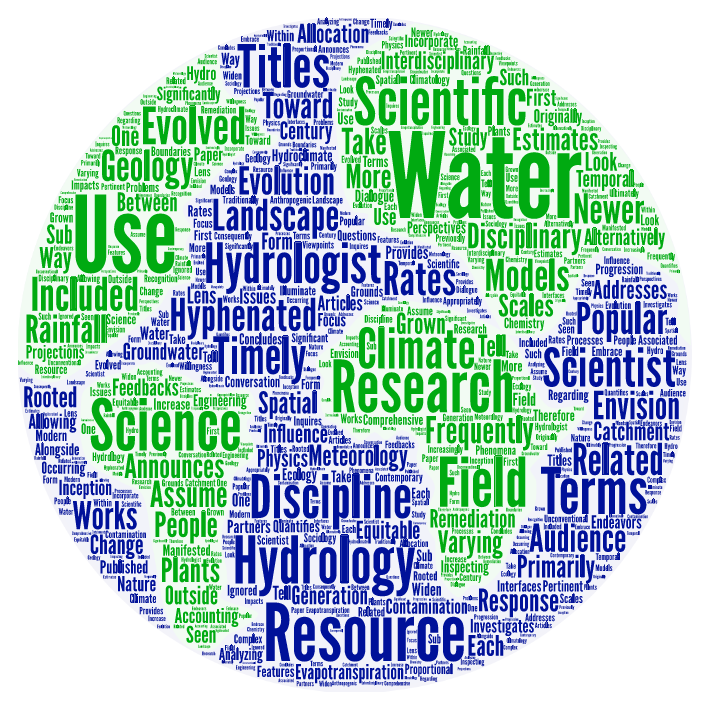PhD student Katie McCurley studied how the discipline of hydrology has evolved – and is evolving – by analyzing the words that hydrologists use in the titles of their papers. She analyzed the titles of 16,591 papers over 50 years.
Here is why she thinks you should read this paper!
When a scientist announces she is a “hydrologist,” her audience might envision that she primarily models landscape response to rainfall, estimates evapotranspiration rates of a catchment, or addresses groundwater contamination and remediation. Alternatively, a newer generation of water resource scientists may assume she works toward equitable water resource allocation, investigates how people influence water resources on varying spatial and temporal scales, or researches the feedbacks between plants and the hydroclimate while accounting for climate change projections.
Hydrology as a scientific discipline has evolved significantly since its inception in the mid-20th century, originally rooted in physics and engineering. Since then, hydrology has grown to incorporate perspectives from outside disciplines, allowing for a more comprehensive take on hydrological research endeavors. Our study quantifies this disciplinary progression by inspecting the terms most frequently used by hydrologists in the titles of their published articles. Analyzing the timely proportional use of frequently-occurring water resource terms, including the way they are used alongside each other, provides a look into the dialogue regarding pertinent and popular water resource issues. The titles, therefore, tell us the timing and nature of scientific conversation.
One of hydrology’s first disciplinary partners is geology, which manifested as a sub-discipline of an often hyphenated form: hydro-geology. Contemporary hydrology has seen interfaces with other fields such as meteorology, chemistry, climatology, ecology, and sociology. Our paper concludes a significant increase in popularity among research questions associated with climatic and meteorological processes, landscape features and phenomena, and inquiries related to anthropogenic impacts on water resources. Modern hydrologists, consequently, can increasingly widen their lens of focus and illuminate grounds traditionally ignored or not included within the boundaries of water resource science. Ultimately, hydrology as a field has appropriately evolved a willingness to embrace previously unconventional scientific viewpoints in recognition of complex water resource-related problems.


PS, we made the word cloud image using the words from this post on tagul.com
